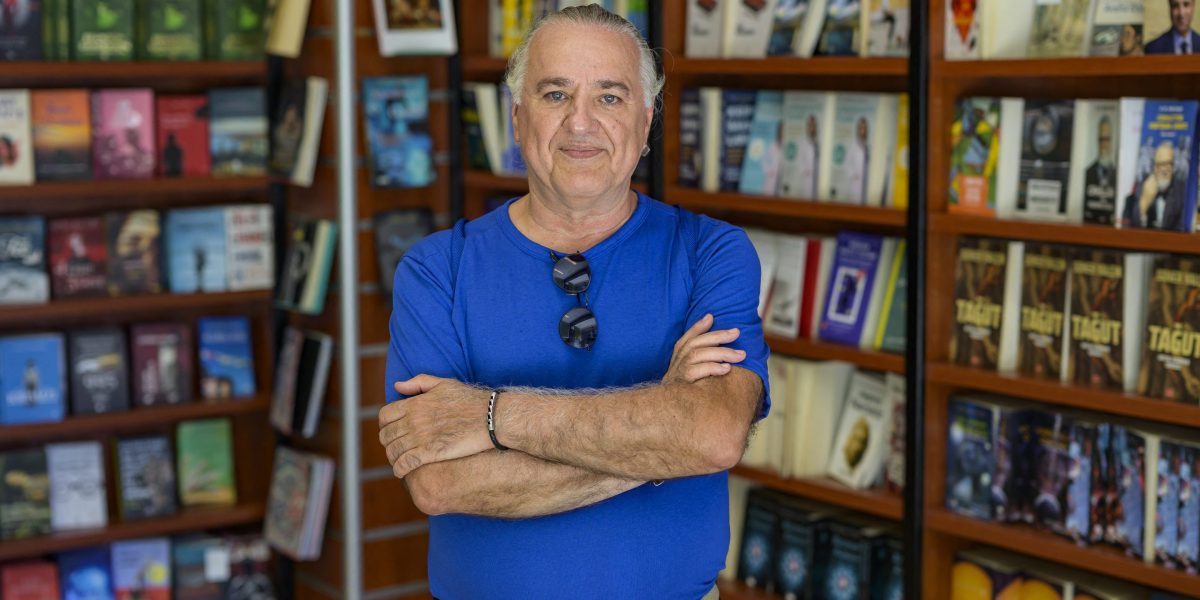Turkish penpal duo publish one of the nation’s best-selling novels through prison bars
While the idea originally sought to keep the prisoner busy, the duo soon wrapped 13 chapters.


A jailed Kurdish leader and a Turkish writer on the other side of the bars have used their penpal exchanges to write one of Turkey’s highest-selling books.
The crime novel “Duet in Purgatory”, which features a retired left-wing lawyer and a bitter ageing general with a tortuous past, has been a roaring success.
The two writers developed the story, which spans the last 40 years of Turkey’s tumultuous history and the long-standing Kurdish conflict, without ever discussing the plot.
“It was a risky gamble to try and write a novel like you’d play chess, move by move, without agreeing on the plot, the characters or the style — nothing,” Selahattin Demirtas told a literary critic in an interview from prison.
The writing of the story began when author and translator Yigit Bener sent the jailed Kurdish leader Demirtas, who is serving a 42-year sentence, a copy of Louis-Ferdinand Celine’s classic novel “Journey to the End of the Night”.
He also put a note inside — “the expression of my solidarity”.
Demirtas, who is 51 and a former co-president of the third largest political party in Turkey’s parliament was jailed in 2016 with the European Court of Human Rights later condemning his detention as political and calling for his release.
“I couldn’t accept that this man for whom, like six million others, I had voted for, and whose ideas I share, found himself behind bars while I am free,” said Bener.
‘A lot of fun’
Bener, who lived in exile in the 1980s, had praised Demirtas’s collection of short stories “Dawn”, and the two began corresponding via the politician’s lawyer.
The re-election of Turkey’s President Recep Tayyip Erdogan in May 2023 killed Demirtas’s hope of an early release, so Bener pitched the idea of taking their correspondence further.
“What if we wrote a novel, both of us?” Bener suggested, although he had not thought about a plot or characters and hadn’t intended it as a serious project.
While the idea originally sought to keep the prisoner busy, the duo soon wrapped 13 chapters.
Bener refused to say who wrote first, but said that the pair took turns to write.
“We had a lot of fun but we had to finish,” said Bener. “We put it aside for two months before we had a few friends read it.”
Demirtas’s publishing house Dipnot, which has put out his previous novels and short stories, initially printed 55,000 copies last month, with more to come in September.
“Our personal stories, mine and Yigit’s trajectories contributed to shaping the novel. He motivated me when I needed it,” said the Kurdish political leader.
The secret behind the novel’s success is its timely relevance, said Bener.
“The book poses the question of reconciliation through two characters from the same generation of losers who share the same feeling of defeat,” said Bener. “The idea speaks to today’s Turkey which is more polarised than ever.”
Bener was “extremely emotional” when he finally got permission to meet Demirtas in Edirne prison in northwest Turkey on the day of the book’s release, as the opposition leader is in isolation and only allowed weekly visits from his lawyer or family.
Exceptionally, he was let out of the small cell where he has been locked up for eight years, which he shares with a former mayor of the Kurdish city of Diyarbakir, Adnan Selcuk Mizrakli.
Critics have praised the “funny, fast-paced and spirited narrative”, with readers rushing to see the free half of the writing duo as he tours bookshops.





